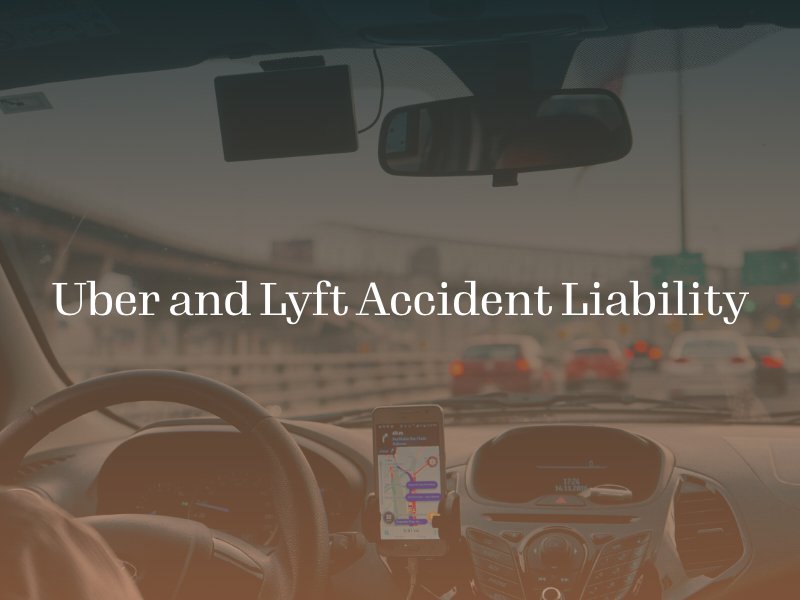Determining liability after any vehicle accident can be challenging, but there is an extra element of difficulty involving incidents with rideshare vehicles. If you or somebody you care about has sustained an injury or property damage as a result of an incident involving an Uber or Lyft vehicle, you need to understand the liability issues surrounding these incidents. Speak with our Boulder car accident attorneys today to discuss the proper legal recourse for your situation.

How Do You Know Who is Liable?
The process of determining liability after an Uber or Lyft accident, or any type of accident for that matter, begins almost immediately. In most cases, a significant amount of evidence gets gathered at the scene of a vehicle accident, and all of this evidence will help the process of determining liability. Some of the most common types of evidence used to determine liability after a rideshare accident include:
- Any video surveillance of the incident that may be available
- Photographs taken at the scene of the incident of vehicle damage, debris, skid marks, injuries, etc.
- Statements from any eyewitnesses to the incident
- Statements of those involved directly in the crash
- The police report
This is the basic type of evidence that helps determine liability for any accident, but incidents involving rideshare vehicles typically require more evidence. This includes, but is not limited to, the following:
- Data from the rideshare app on the driver’s phone
- Mobile device data if distracted driving is suspected
- Initial vehicle inspection records
- Vehicle maintenance and repair records
Determining fault involves examining multiple aspects of the incident. With a rideshare incident, fault could fall to multiple parties, including the rideshare driver and other drivers on the roadway. In order for rideshare accident victims to recover compensation, liable parties must be identified.
Who Pays After a Rideshare Accident?
Exactly who pays injury or property damage victims after a rideshare accident will depend on which party or parties share fault for the incident. One important aspect of rideshare services is their tiered insurance policy. If the Uber or Lyft driver caused the incident, their driving status at the time the incident occurred matters.
Rideshare drivers without a passenger and not signed into the rideshare app to work are covered under their own personal auto insurance policy. However, if a driver is logged into their app and waiting for a passenger, Uber and Lyft both provide supplemental insurance policies that kick in in the event the driver’s primary policy does not pay all expenses if they cause an accident.
Importantly, both companies have $1 million liability policies that kick in if a rideshare driver has a passenger in their vehicle or is on the way to pick one up.
These insurance policies will matter for injury and property damage victims of an incident involving rideshare vehicles. Even if another party happened to cause the incident, these larger insurance policies from the right share companies would cover every person involved in the incident. The insurance carriers can hammer out who pays you (and any other victim) if there is shared fault. Rideshare accident victims in these circumstances should be able to recover compensation for their medical expenses, lost wages, vehicle repairs, and other expenses.